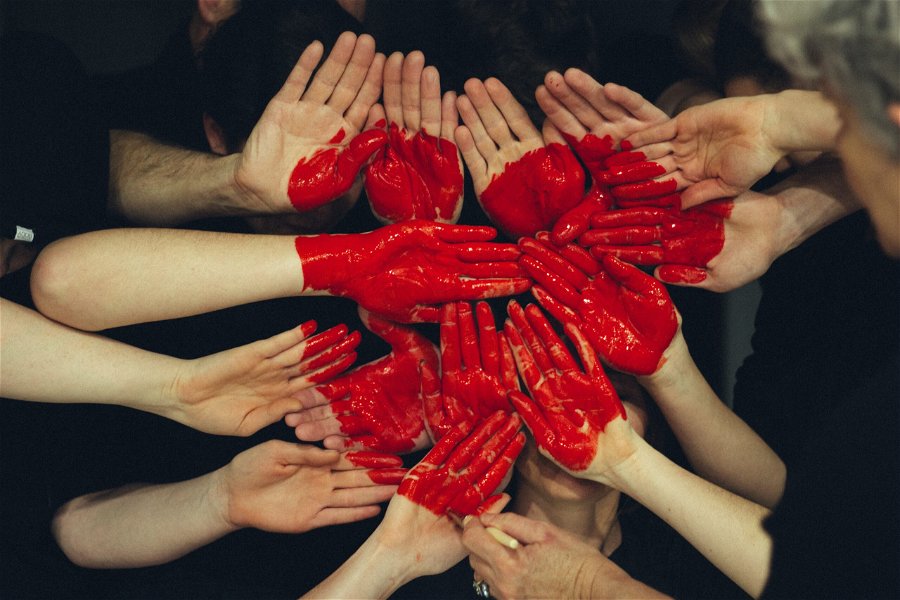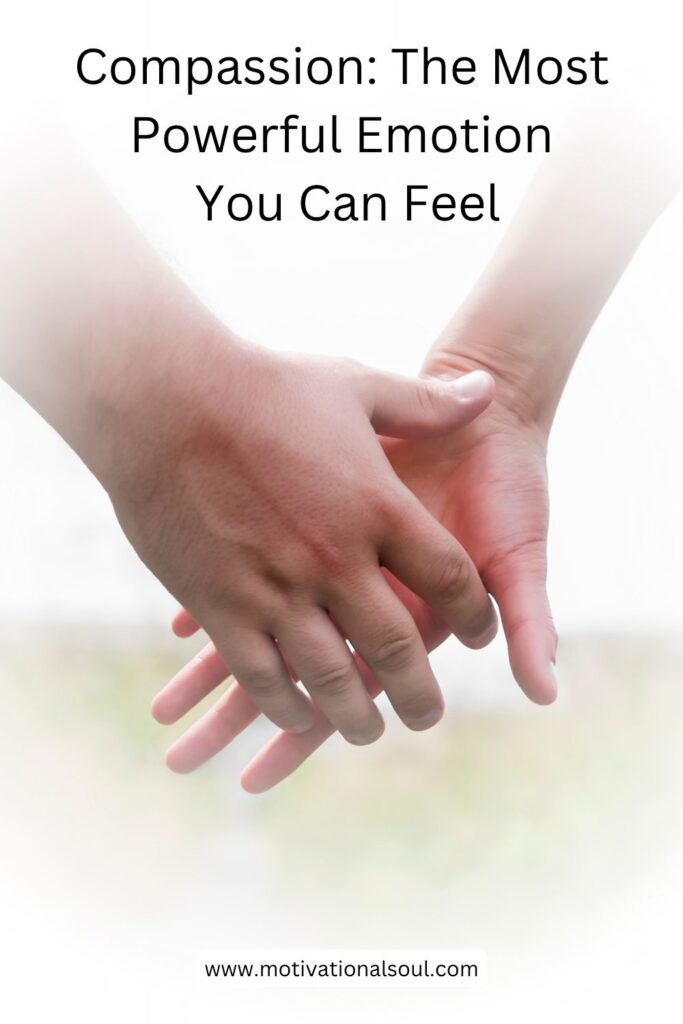Compassion: The Most Powerful Emotion You Can Feel

One of the most heartbreaking sights is a human soul stripped of compassion.
Compassion awakens when we perceive another’s struggle and yearn to soothe their pain. It is a powerful force that can revitalize both the receiver and the giver. Compassion matters because it enables us to foster genuine bonds with one another. In this piece, we will delve into the essence of compassion, why it wields so much influence, and how we can cultivate it in our everyday lives.
“Compassion is not a weakness; it’s the purest kind of strength.” – Anonymous
What Is Compassion?
Compassion sparks within us when we encounter someone in turmoil and feel an earnest longing to lessen their anguish. It weaves together pity, empathy, kindness, and love into one formidable feeling. Though this might appear straightforward, compassion stands among the most life-altering emotions we can embrace.
Why Is Compassion So Powerful?
- It Deepens Connection
When we witness another’s suffering, something stirs within us, allowing us to relate at a profoundly human level. - It Inspires Action
Compassion often compels us to move beyond mere sympathy into tangible help—whether volunteering time or donating resources—because doing nothing when someone hurts becomes unthinkable. - It Catalyzes Lasting Change
When we empathize with another’s hardship, we feel driven to adjust our own ways, striving for a more harmonious and nurturing world.
“When we give others our empathy, we receive a piece of our own humanity in return.” – Maya L. Sanders
Signs of Compassion
- A deep urge to intervene when you see pain
- A sense of unity and solidarity with people around you
- A willingness to translate empathy into concrete assistance
- A desire to ignite lasting, uplifting transformations
Types of Compassion
- Empathetic Compassion involves feeling another’s suffering and wholeheartedly understanding their perspective—though it may not spur an immediate desire to fix the situation.
- Active Compassion layers empathy with a fierce determination to help. This type of compassion can turn passive understanding into purposeful intervention.
How to Cultivate Compassion
Practice Mindfulness
Fostering compassion often begins with calmly observing the present moment without judgment. By recognizing our own vulnerabilities, we strengthen our capacity to empathize with others. Pausing to breathe and truly notice can crack our hearts wide open, paving the way for deeper concern.
“In stillness, we discover our shared fragility, and in fragility, we discover our shared compassion.” – Aria Fields
Speak with Kindness
A soothing voice or an uplifting comment can rejuvenate another person’s spirits. By consistently speaking kindly—even when surrounded by negativity—we nourish a caring atmosphere that encourages others to do the same.
Show Respect
Acknowledging others’ dignity reinforces their intrinsic value. Offering respect invites a climate of understanding and trust, thus carving out space for deeper empathy to thrive.
Be Patient
Patience empowers us to respond thoughtfully, rather than lash out impulsively. Recognizing that everyone shoulders hidden burdens helps us approach them with gentleness and sympathy.
Express Gratitude and Appreciation
By recognizing what we have—no matter how humble—we shift from a mindset of scarcity to one of abundance. This optimistic viewpoint makes it more natural to extend kindness to others. In essence, gratitude enriches our capacity for generosity.
Encourage Other People
Support can range from celebrating someone’s accomplishment to lending a listening ear or offering practical help. These seemingly small gestures can rekindle hope in a person’s life and spark a wave of compassion throughout the community.
“Every time you uplift another, you raise humanity as a whole.” – Dr. Celeste Monroe
Bring Your Attention to the Situation
Slowing down, actively listening, and truly witnessing another’s plight can bridge the gap between minds. By immersing ourselves in another person’s reality, we open the door to empathy, and from there, compassion is free to flourish.
Let Go of Judgment
Judging others stifles our ability to empathize. By releasing the need to label or criticize, we grant people the space to be vulnerable, to seek kindness—and, in turn, we remember that we too are in need of patience and care.
Impact of Compassion
Compassion has the power to reshape lives.
- Giving Feels Good: Offering support triggers beneficial responses in the brain that boost both emotional well-being and physical health.
- Reduces Stress: Choosing compassion diminishes tension and replaces it with calm.
- Fortifies Relationships: Compassion fosters an atmosphere where friends, families, and communities can openly share, learn, and grow.
- Elevates Happiness: Research consistently links compassionate deeds to heightened contentment and fulfillment in life.
“When compassion becomes a habit, happiness becomes second nature.” – Javier de la Vega
Potential Pitfalls of Compassion
Although compassion can transform us for the better, it might slip into codependency if we constantly neglect our own needs in our efforts to help others. Additionally, facing enormous suffering can lead to emotional overwhelm, or “compassion fatigue.” Balancing self-care with a selfless heart ensures we can keep our reservoir of empathy replenished.
Conclusion
Compassion is a deeply human force that can alter our lives and the world around us. Through conscious decisions and sincere openness, we can uplift those in distress while simultaneously kindling our own sense of purpose. If you wish to expand your compassion, start by taking notice: slow down, observe hardship honestly, and let go of judgment. Remain mindful of potential stumbling blocks, such as burnout or codependency. With awareness and gentle care, we can harness compassion to enrich our relationships, strengthen our communities, and, ultimately, better our collective home.




Recent Comments